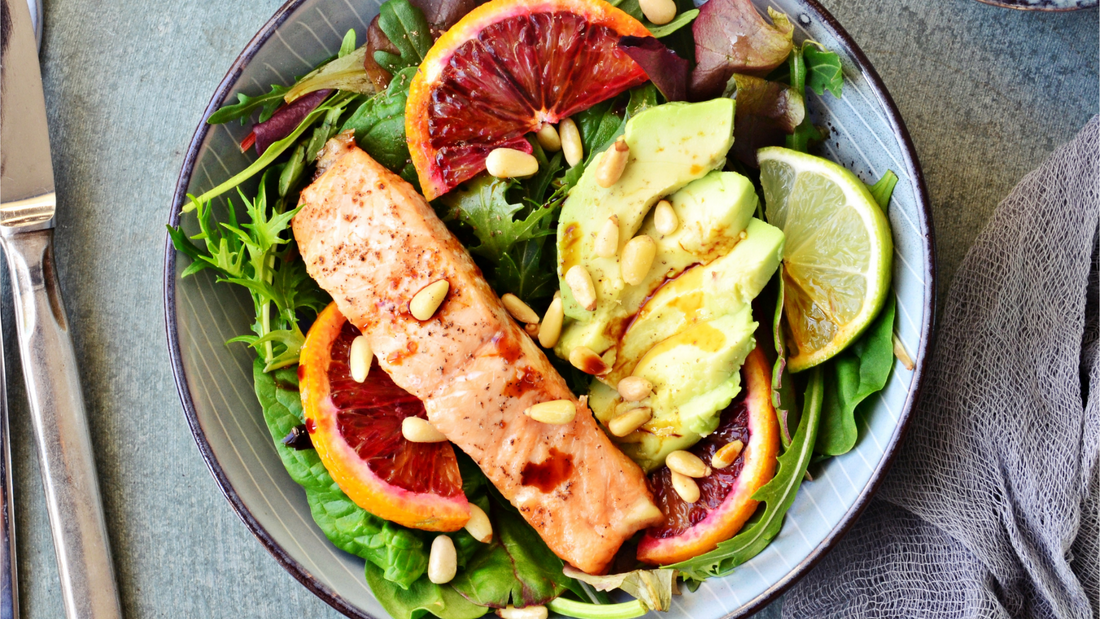If you’re preparing for surgery, you’re probably thinking about appointments, medications, and getting your home ready, not necessarily your diet and the food you eat on a daily basis.
But here’s what most people don’t realize:
What you eat in the 4-6 weeks before your surgery can directly (and drastically) impact how well you recover.
Emerging research suggests that pre-surgery inflammation, especially diet-induced, is a modifiable risk factor. That means it’s something you can change to help reduce complications and bounce back faster after your procedure.
What the Research Says
A 2025 study published in the journal Nutrients looked at surgical patients undergoing colorectal cancer procedures. Researchers measured how “inflammatory” each patient’s diet was using a standardized tool called the Dietary Inflammatory Index (DII).
Here’s what they found:
- Patients with high-inflammation diets (high DII score) had a 57.1% complication rate within 30 days of surgery.
- Those with low-inflammation diets (low DII score) had only a 35.7% complication rate.
- 5-year survival rates dropped from 90.4% to 41.3% in the high-inflammatory diet group.
While this research focused on outcomes related to colorectal surgery specifically, the underlying conclusion can be extrapolated to other surgical specialties, such as orthopedics, cosmetic surgery, etc. This extrapolation is justifiable because of what we know today about the impact that inflammation-inducing diets has on our body's known healing processes.
Why Inflammation Matters for Recovery
Surgery is already an inflammatory event. Your immune system is triggered, tissues are injured, and healing begins. But if you’re starting with a pro-inflammatory baseline, your body is already playing from behind.
Excess inflammation can mean:
- Mor swelling
- More pain
- Higher risk of infection or wound complications
- Delayed healing
- Longer hospital stays
That’s why reducing inflammation before the first incision is made can be an absolute game-changer.
What Does an Anti-Inflammatory Diet Look Like?
It’s not about fancy supplements or hard-to-follow meal plans. It’s about returning to real, whole food. Here’s what to focus on:
- Whole foods over ultra-processed: Think home-cooked meals, not boxed or bagged snacks.
- Plant-based proteins + fiber: Beans, lentils, and whole grains support gut health and reduce systemic inflammation.
- Micronutrient-rich fruits and vegetables: Aim for a variety of colors daily—especially leafy greens, berries, and cruciferous vegetables.
- Healthy fats from whole sources: Avocados, nuts, seeds, olive oil, and fatty fish are all powerful anti-inflammatory staples.
And yes, cutting down on sugar, refined carbs, and processed meats matters a great deal too. The best course of action you can take is cutting out inflammation-inducing foods while simultaneously eating more and more of the anti-inflammatory ones listed above.
What You Can Do Right Now
Even making small changes 4-6 weeks before surgery can lower your risk and improve recovery. You don’t need to be perfect, just consistent. Here’s a quick action plan you could consider:
30 Days Out
- Start adding more vegetables and healthy fats daily
- Limit sugary snacks and soda
- Add one plant-based meal per day
2 Weeks Out
- Eliminate ultra-processed foods as much as possible
- Focus on hydration, fiber, and clean proteins
- Stick to whole-food meals you can cook or prep at home
SurgicalRx Can Help
At SurgicalRx, our surgeon- and dietitian-led team has developed anti-inflammatory nutrition strategies that are simple, effective, and designed specifically for surgery prep.
Whether it’s through educational guides, daily checklists, or our clinical supplement bundles, we make it easier to implement a healing-friendly diet that supports your surgical success.
Because optimizing your outcome doesn’t start on surgery day, it starts now.

